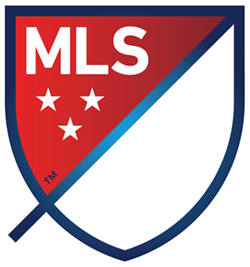MLS commissioner Don Garber appears open to the idea of in-person wagers at the league’s stadiums, but future laws would have to allow for such a possibility.
Legalized sports betting has become more widespread since last May, when the Supreme Court decided to rule the Professional and Amateur Sports Protection Act of 1992–which banned sports betting in most circumstances–as unconstitutional. That decision effectively paved the way for states to legalize sports betting individually, including a pair in New Jersey and Pennsylvania that are home to MLS teams.
When speaking with reporters on Sunday, Garber indicated that he is open to the idea of future MLS stadium sportsbooks, but noted that some hurdles currently exist. Most of the laws approved thus far have not extended legalized sports betting to professional sports venues, and that trend will have to evolve in order to clear the way for sportsbooks at MLS stadiums and other facilities. More from Forbes:
“I go to a lot of games in England, and I never really objected to the fact that somebody would come into the owners’ box and take a bet on a game,” Garber said. “If people are going to do it, you might as well manage it, organize it, you might as well generate tax revenue for it and find ways that the league can use it as a marketing tool to have people engage more with our players and our clubs.”
Eight states have full-scale legalized sports betting. Two more have legalized but not yet launched wagering, and many others are considering bills to follow suit. Two states where it is already legal, Pennsylvania and New Jersey, are home to MLS clubs, and in New Jersey, a sports gaming company is reportedly among those bidding for the naming rights of the home stadium of the New York Red Bulls.
The main roadblocks to putting books in stadiums are legal or logistical, rather than any preference of the league or teams, Garber explained.
“The clubs can’t put the books in stadiums, it has to go through a gaming company,” Garber said. “Those gaming companies have to get a license from the specific states, and the states have to determine where those venues can be. Right now those venues are sitting for the most part in licenses with casinos. They haven’t pushed it outside the casinos yet in any state. So we’re going to see how it evolves.”
Thus far, the general trend among states that have legalized sports betting is to stop short of allowing for the operation of sportsbooks at professional sports venues. One jurisdiction that has taken a different approach is Washington, DC, where officials approved but have yet to implement a law that allows in-person wagers at professional sports facilities.
Still, there have been a flurry of leagues, facilities, and teams entering into partnerships with gaming companies as legalized sports betting becomes more widespread, even if those agreements do not include in-stadium areas where wagers can be placed. As an example, Newark, NJ’s Prudential Center–home of the NHL’s New Jersey Devils–recently opened the William Hill Sports Lounge, an area where event attendees can track their bets but–in accordance with state law–cannot place in-person wagers. Similar partnerships could be a way for MLS and its teams to form relationships with gaming companies, even in the absence of in-person wagers being allowed at individual stadiums.

